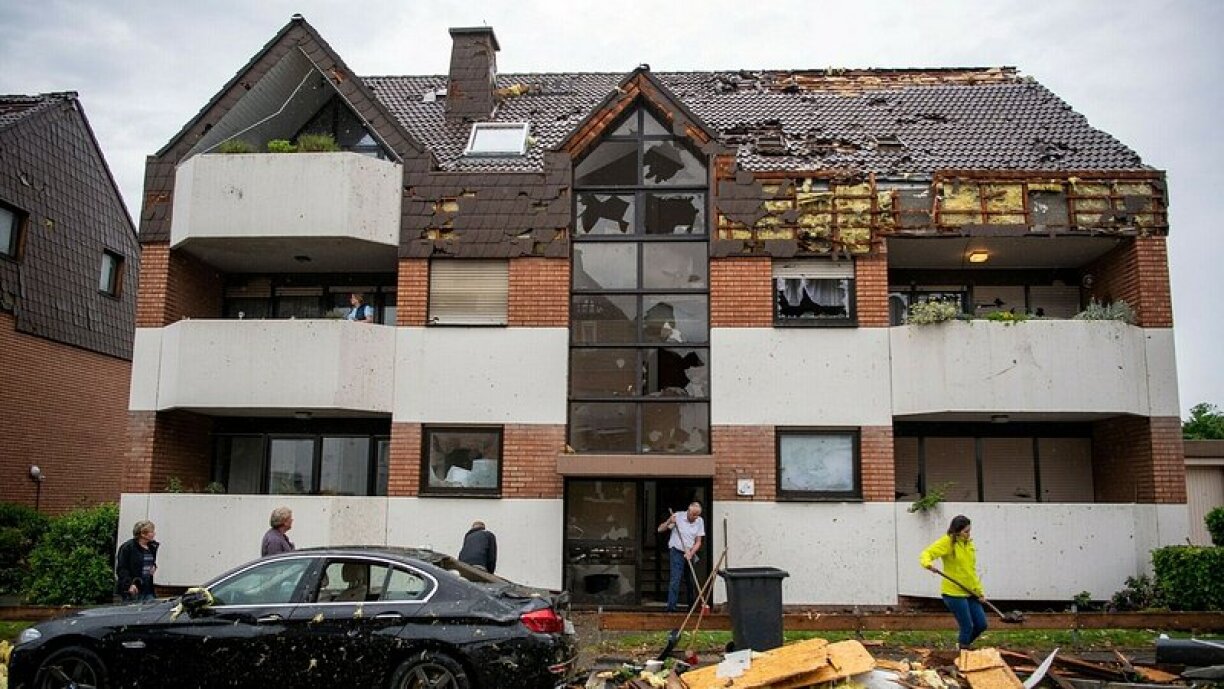The rare and localised tornado phenomenon hit Paderborn, a town in North Rhine-Westphalia on Friday afternoon, while the rest of Germany is experiencing stormy weather after several days of unseasonably high temperatures.
Over people were reported as injured; thirty of whom were hospitalised, with one being in danger of death.
In neighbouring Rhineland-Palatinate, a 38-year-old man died after suffering an electric shock upon entering a flooded cellar following the storm, police in Koblenz reported.
In Paderborn, police estimated the damage caused by the storm at “several million euros”. They were called out over 350 times.
Pictures posted on social media showed the tornado advancing towards homes, carrying away trees and tearing up sections of buildings.
Some 30 kilometres away, the town of Lippstadt was also probably hit by a tornado - according to a fire brigade spokesman - but no injuries have been reported at this stage.
However, photos posted on social media reveal the bell tower of the local church was blown away by the violent gusts of wind. The spokesperson reported “roofs blown off, windows broken and many trees blown down all over the town”.

More generally, the weather caused widespread damage in this western German region, with police reporting countless uprooted trees. Pictures posted online also showed cars being overturned.
In Rhineland-Palatinate, hail up to five centimetres in diameter caused serious damage to several dozen vehicles whose windows were smashed while driving, said the police in Koblenz.
Both Rhineland-Palatinate and North Rhine-Westphalia were already been badly hit last July by heavy rainfall that caused flooding and killed more than 180 people.
High-speed train traffic was severely disrupted in the west, and police called on residents to stay home.
In the south, in Nuremberg, Bavaria, regional traffic was also disrupted due to trees falling on the tracks, Deutsche Bahn said.
The German weather service had issued a storm warning for Friday, with winds gusting up to 130km/h in places.
The storms, which first hit the west of the country, were moving eastwards in the evening.
The violence of the storm is linked to the arrival in Germany of particularly hot air from Spain and France, on the one hand, and cold air from the north on the other, explained meteorologist Özden Terli on ZDF, who spoke of an explosive mixture.